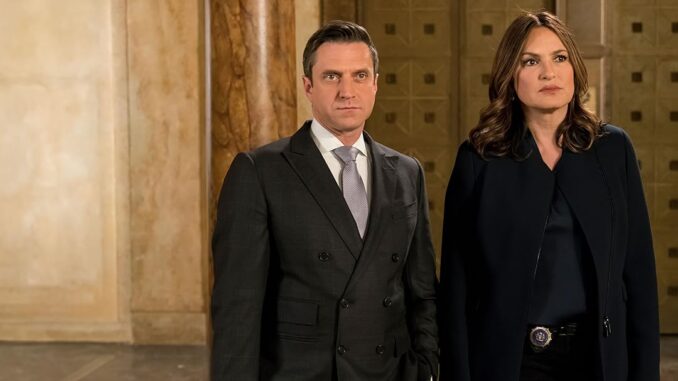
The familiar clang of the opening theme, the gravitas of the narration, the stark realism of the crimes – for over two decades, Law & Order: SVU has been more than just a television show; it has been a cultural constant, a weekly ritual, and for many, a deeply woven thread in the fabric of their lives. When a series runs for so long, its characters cease to be mere fictional constructs; they become familiar faces, silent companions, almost like extended family members who visit our living rooms once a week. To witness the departure of not one, but two main characters from such a long-standing institution is not merely a plot development; it is an emotional earthquake that sends tremors through a deeply invested fanbase, eliciting a collective mourning that transcends the typical reaction to a show's narrative shift.
SVU's longevity is built on the bedrock of its character development. Unlike many procedural dramas where the case takes absolute precedence, SVU always understood the critical role of its detectives. Olivia Benson, Elliot Stabler, John Munch, Fin Tutuola – these names evoke more than just fictional roles; they conjure images of countless nights spent grappling with the darkest facets of humanity, celebrating small victories, and enduring profound personal sacrifices. Viewers have watched these characters evolve, stumble, rise, and endure. We’ve seen them age, fall in love, face personal demons, and forge bonds that felt as real as those in our own lives. They became anchors in an often-turbulent fictional world, providing a sense of stability and continuity even as the perpetrators and victims changed with each episode.
The departure of any long-standing character is a jolt, but losing two mainstays often feels like a core structural collapse. It’s akin to walking into a beloved home and finding that two essential pillars have been removed. The air feels different, the space unfamiliar, the very foundation seemingly vulnerable. This isn't just about missing an actor's performance; it's about the erosion of a shared history. Fans have invested years, sometimes decades, in these characters' journeys. They've cried with them, raged alongside them, celebrated their triumphs, and agonized over their pain. When such a figure departs, it leaves a void that echoes with the memories of past seasons, past cases, and a myriad of unspoken moments that contributed to their indelible presence.
The "mourning" fans experience is multifaceted. There's the initial shock and disbelief, followed by a profound sadness. It’s a grief for what was, for the potential future stories that will now never be told with those particular individuals at their core. There’s a sense of loss for the unique chemistry they brought to the screen, the specific dynamics they created within the ensemble. For many, the show itself feels diminished, a piece of its soul gone. Online forums and social media platforms become digital wakes, where fans collectively process their emotions, sharing favorite scenes, lamenting the change, and finding solace in their shared sense of loss. It’s a testament to the immersive power of storytelling, where the lines between fiction and reality blur, allowing fictional characters to evoke genuine human emotion.
In the aftermath, the show itself faces an enormous challenge. How do you fill such a monumental void? New characters are introduced, storylines pivot, and the remaining cast must adapt to a drastically altered landscape. While some shows manage to reinvent themselves successfully, the lingering question for a devoted fanbase remains: Will it ever truly feel the same? The answer, more often than not, is a bittersweet no. The fabric of the show has been irrevocably altered, and while new threads may be woven in, the original pattern is forever changed.
The collective mourning of SVU fans over the loss of two main characters is a powerful illustration of the deep, often underestimated, bond between audience and character. It transcends simple entertainment, speaking to our innate human need for connection, consistency, and shared narrative. It reminds us that while the stories unfold on screens, the emotions they evoke are undeniably real, leaving a lasting imprint long after the final credits roll. It is a poignant reminder that even in the world of television, endings – especially unexpected ones – can feel very much like goodbyes to old friends.
